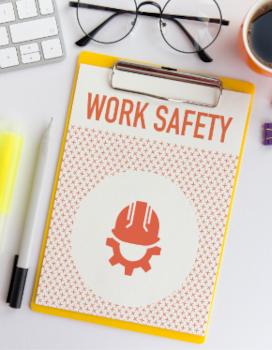The long-awaited Polish Whistleblower Act will enter into force on 25 September 2024. This means that employers should now prepare the relevant procedures, or at least update the existing ones, in order to comply with the new regulations. According to the provisions of the Act, a violation of the law is an act or omission that is unlawful or intended to circumvent the law, including the protection of personal data. Therefore, in addition to implementing new whistleblower procedures, we recommend reviewing procedures and documentation related to data protection.
Author: Redaktor
The Artificial Intelligence Act (AI Act) is the first law in the world to comprehensively address the challenges of developing Artificial Intelligence. The new EU legislation requires implementation in the EU Member States.
The AI Act was approved by the European Parliament on 21 May 2024. A large majority of MEPs voted in favour of the AI Act: 523 deputies were for, whereas only 46 -against. This means that many MEPs see the need to regulate this area and are concerned that the development of Artificial Intelligence will remain out of control.
Recently, there has been increasing talk of a four-day work week, which could also become a reality in Poland. Despite the growing interest in the topic and numerous studies pointing to the benefits of such a solution, the June 20, 2024 response from the polish Ministry of Family, Labor and Social Policy is disappointing. The Labor Law Department has, for the moment, given a negative response to the petition for legislative changes aimed at reducing working hours and increasing the number of vacation days.
Implementing a whistleblower protection system in Poland, especially in the context of “daughter” companies of foreign corporations, is a challenging process. The Polish law on the protection of whistleblowers, imposes a number of specific obligations that can be difficult to implement within international capital groups. For “daughter” companies, a particular challenge is balancing local requirements with the expectations of foreign owners. When conducting implementations, we often encounter a case in which a Polish company is already the last one in an international group where whistleblower protection must be implemented. In such a situation, it seems rational to adapt solutions already implemented in Germany, Austria, the Netherlands or other countries and adjust them to Polish realities. However, direct transfer of foreign solutions “1:1” is rarely effective. In the same way, it may turn out to be a bad idea to “invent gunpowder anew” and create internal solutions only for the needs of a Polish company. So how to find” the golden mean”?
Improving the professional qualifications of employees seems to be crucial to maintain the competitiveness of a company. On the other hand, employers are obliged to facilitate the acquisition of new skills and knowledge by employees, which is clearly stipulated in Article 17 of the Polish Labour Code Act of 26 June 1974 (i.e. Journal of Laws of 2023, item 1465; hereinafter: ,,Labour Code”). When deciding to support an employee in the development of his or her competences, it should be borne in mind that this should be done in a thoughtful and fair manner, taking into account the principles of anti-discrimination.
The employment contract is usually the first document signed by a newly recruited employee. It can make either a positive or negative impression on the employee. What should an employment contract contain? What form should it take? Does its volume matter?
In recent years, protection against discrimination in the recruitment process has become one of the key topics in employment law. An important step in this area was the ruling of the Court of Justice of the European Union (CJEU) on 19 April 2012 in the case C-415/10, Galina Meister vs. Speech Design Carrier Systems GmbH. This ruling set new standards in the fight against gender and age discrimination, with important implications for employers and candidates in the labour market. However, the upcoming Directive (EU) 2023/970 of the European Parliament and of the Council of 10.05.2023 on reinforcing the application of the principle of equal pay for men and women for equal work or work of equal value through pay transparency and enforcement mechanisms (hereinafter the pay transparency directive), introduces new regulations that aim to increase access to information and promote equality.
In April 2024, a year passed since the supplementation of the work-life balance directive to the Polish Labour Code Act of 26 June 1974 (i.e. Journal of Laws of 2023, item 1465; hereinafter: ,,Labour Code”). One of the key elements of the changes to the labour legislation was the introduction of carer’s leave and force majeure leave. It is therefore worth summarising how these regulations function in practice and what are the most common doubts of employers related to their application.
The Polish labour code provides special rights for pregnant women. For many employers, understanding their obligations towards pregnant employees is crucial as it ensures legal security on one hand, and strengthens the positive image and culture of their organization on the other.
After more than 20 years, we lived to see changes in the minimum requirements for occupational safety and health and ergonomics of workstations equipped with screen monitors. We are talking about the pol. Decree of the Minister of Labor and Social Policy of December 1, 1998 on occupational safety and health at workplaces equipped with screen monitors, as amended by the pol. Decree of the Minister of Labor and Social Policy of October 18, 2023 (hereinafter: the decree).










